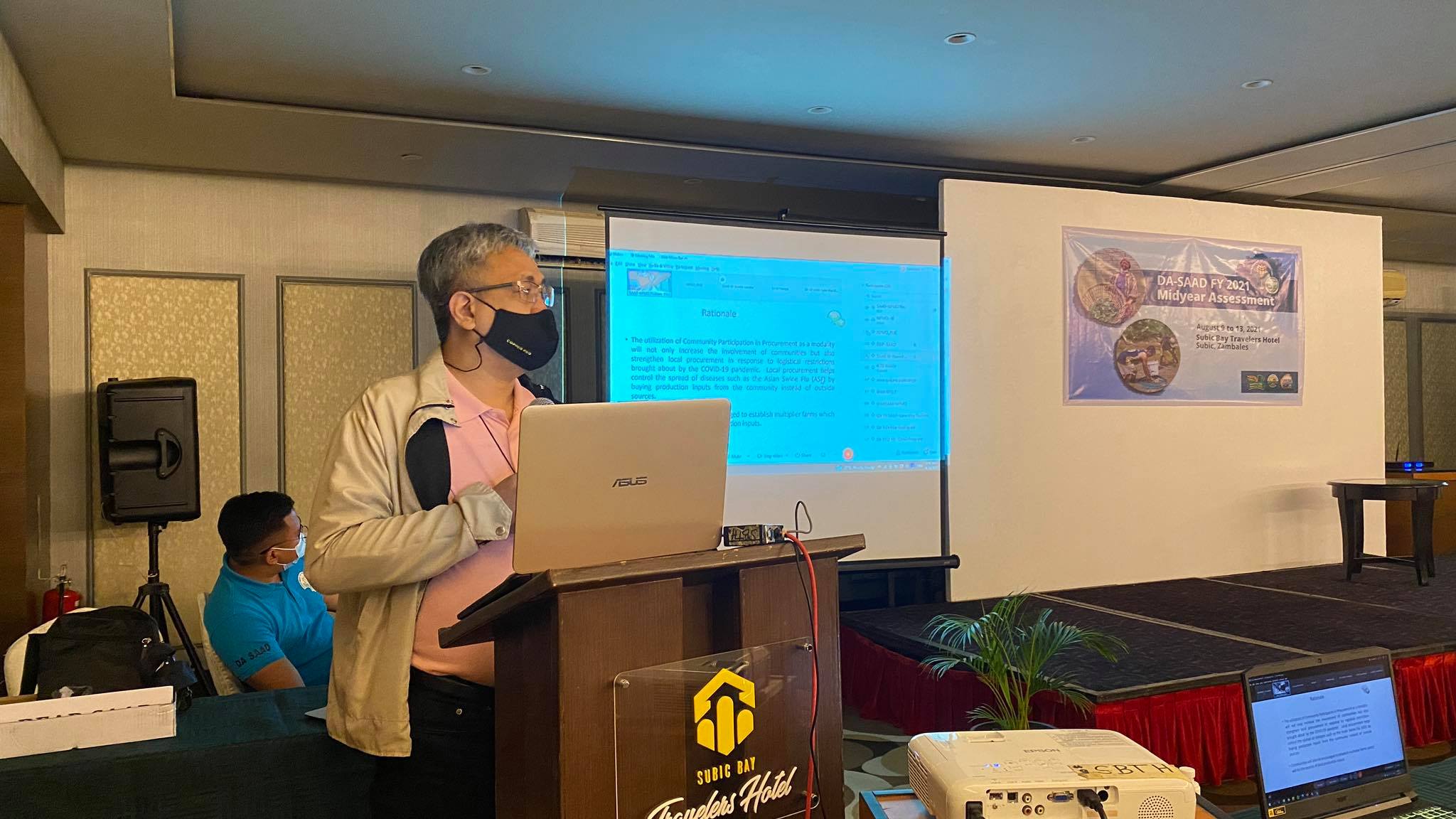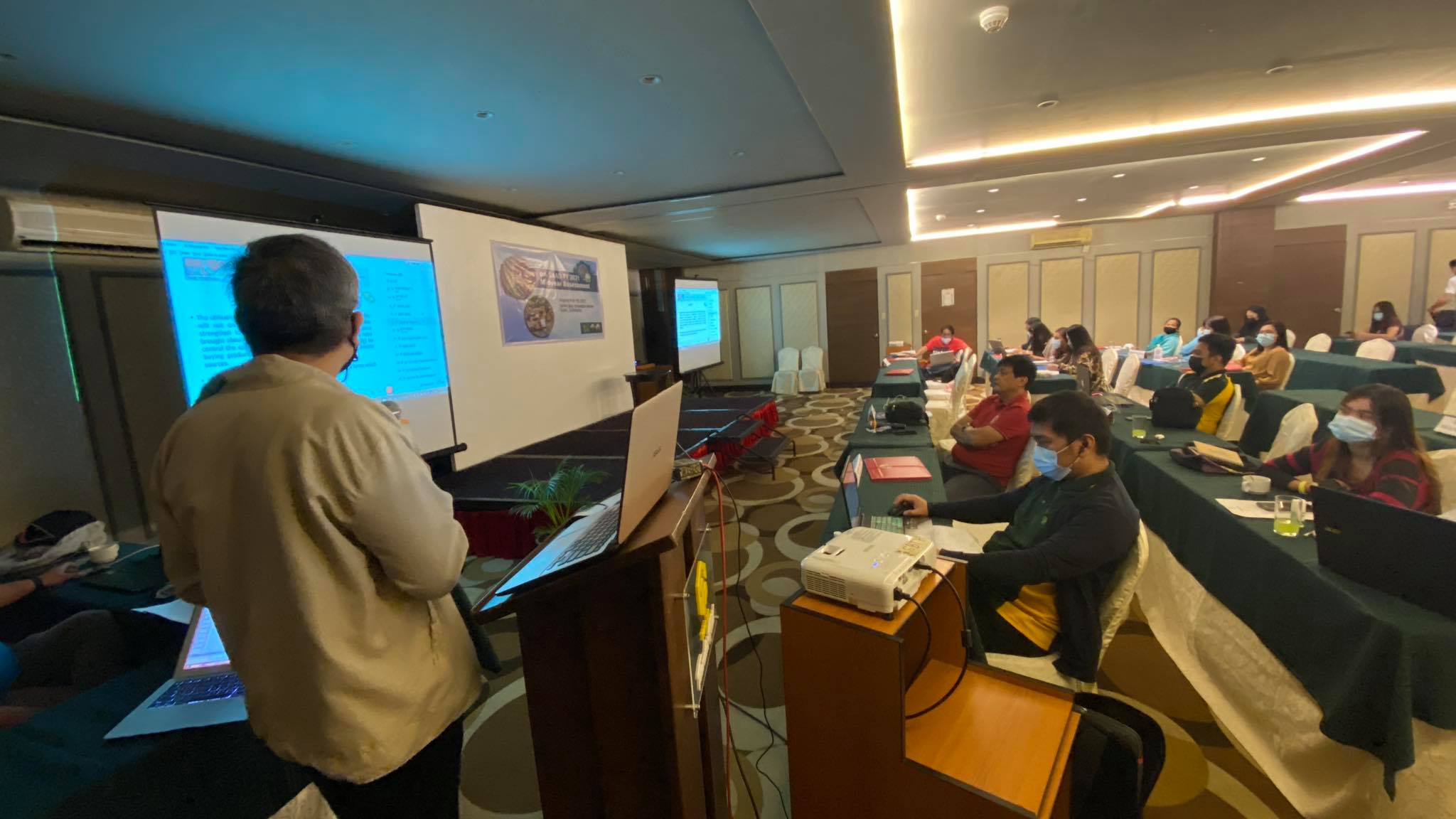SUBIC, August 13, 2021 – The Special Area for Agricultural Development (SAAD) Program of the Department of Agriculture (DA) will craft procurement guidelines to adopt community participation in buying goods and services for livelihood projects.
SAAD will put forward to the management the Community Participation Procurement Manual (CPPM) of the Government Procurement Policy Board (GPPB), which provides guidelines for negotiated procurement.
The said proposal was presented during the mid-year assessment to the SAAD focal persons of the 11 regions and signify their approval for ease of procuring good and services.
Deputy Director Ulysses Lustria, Jr. discussed the decision to utilize it during the program’s 2021 mid-year accomplishment assessment in Subic, Zambales from August 9 to 13. “It will not only increase the involvement of communities but also strengthen and promote local procurement,” he said.
Community-managed procurement under CPPM
Section 53.12 of the 2016 revised Implementing Rules and Regulations (IRR) of Republic Act 9184 entitled “An Act Providing for the Modernization, Standardization and Regulation of the Procurement Activities of the Government and For Other Purposes” allowed resort to negotiated procurement under community participation.
GPPB issued two resolutions in 2014 and 2015 supporting the said method, where the community will be engaged by a procuring entity as a contract manager to implement locally-funded community-based projects.
The Department of Social Welfare and Development (DSWD) and the Enhanced Partnership Against Hunger and Poverty (EPAHP) are some of the organizations which crafted community participation procurement guidelines approved by the GPPB.
SAAD Procurement Challenges
Most often, products and services are procured with a sense of urgency because it has a direct impact on an organization. The delivery time frames and product quality should be the major consideration in the procurement cycle – of which, the program has been riddled with difficulties.
Supply risk and long process cycles are the problems reported by the region which cause delays in their transactions.
When big tickets are purchased and there are no direct suppliers in the area that could accommodate the demand, it will result in failure in the bidding process, thus the need to be posted again to look for suppliers who meet the criteria.
Some transact from other provinces. However, previous procurements showed deaths on livestock and poultry due to stress from travels.
Border restrictions brought about by the COVID-19 pandemic also delayed delivery of interventions.
Advantage of the Community Procurement
The procurement method aims to prevent long periods and delayed delivery of interventions as inputs will be sourced out locally, specifically from eligible SAAD associations such as its multiplier farms.
Local procurement also helps control the spread of diseases such as the African Swine Fever.
Animal mortality and seed dormancy are expected to lessen.
The procurement process will help in the sustainability of implemented SAAD projects as it will generate local employment, promote improved farm and fishery productivity, and increase household income. It has a direct impact on improving the lives of community members.
SAAD Multiplier Farm Projects
In a memorandum dated August 5, 2020, the SAAD Program directed regional offices to implement multiplier farm projects as an approach to help abate problems on supply, transportation, and price.
In this project, the SAAD Program provided necessary inputs such as animals, feeds, and medicines as well as technical assistance to identified associations in the establishment and operations of the farm.
With the project, animals are adapted to local conditions so distribution will be hassle-free.
Way Forward
SAAD will craft guidelines following the CPPM of the EPAHP Program issued by the GPPB.
The move will promote participatory governance and empower rural communities, enabling them to have an active role in procurement planning, actual procurement, and contract implementation processes. ###
Writers:
Jhomai Canlas, SAAD NPMO Comms Head
Jennifer Valcobero, SAAD NPMO Public Relation and Comms Officer




Comments (0)